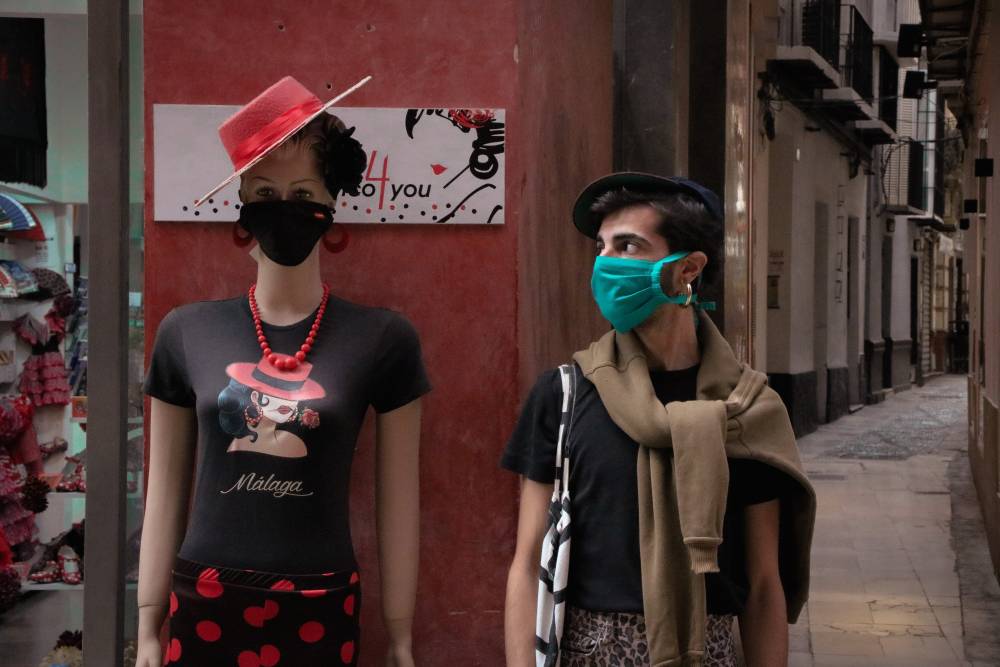
The economic crisis and coronavirus pandemic forced fashion to use more responsible production systems. COVID-19 made the industry realize the importance of sustainable fashion for a better future.
The coronavirus is accelerating a profound transformation that pushes the fashion world towards changing how it produces and distributes clothes.
In recent years, ecological expectations have been growing among fashion consumers. Several fast fashion brands have started to offer eco-responsible collections.
Fashion is one of the most polluting industries in the world. It produces about 10% of annual global carbon emissions, 20% of all wastewater worldwide, and half a million tons of plastic dumped into the ocean each year.
It's time to rethink how we produce and consume clothes. Yet, fast-fashion giants still use synthetic materials for their eco-friendly collection.
As the coronavirus pandemic continues, fashion brands have no choice but to take more action.
Even if the coronavirus pandemic hit the global apparel industry hard, fashion companies are more determined than ever to implement sustainability initiatives.
Consumers also pay more attention to how they spend their money. They plan for the future and demand accountability and transparency from fashion companies.
Millennials and Generation Z especially believe that clothing businesses have a responsibility to address environmental and social issues.
The most promising change after the pandemic is the globally growing importance of local, fair, ethical, and sustainable apparel production.
Fashion doesn't have the luxury to ignore sustainability anymore. Otherwise, companies risk losing market shares and the trust of their employees, suppliers, partners, and customers.
The future of those who don't adapt isn't bright. To survive in the fashion industry, brands and retailers need to make more drastic changes towards eco-responsible and local production.
The COVID-19 crisis forced fashion brands to partner with local companies instead of bringing in materials from the other side of the world at a lower price.
Fast fashion is getting slower and slower, and many labels work to limit the amount of fabric waste during manufacturing and recycle discarded textiles into new products.
A new study from the U.S. Cotton Trust Protocol and the Economist Intelligence Unit reveals that sustainability is the second most important objective for fashion companies during the COVID-19 crisis.
The coronavirus pandemic has changed everything. It forced everyone to slow down. High street fashion stores can't afford to put new lines on the shelves every month, or even several times a month.
Has the fashion industry changed forever? Or is it going to back to overproduction and overconsumption once COVID-19 is under control?
Fashion brands forced to slow down production and distribution are likely to continue more responsible ways of doing things once the crisis is over.
A complete recovery will take several years, and even then, conscious consumerism is growing. It's possible to consume and produce better. The green fashion business is very profitable, but change takes time.
Gucci's Creative Director Alessandro Michele and the Saint Laurent fashion house recently announced a slowdown. They won't follow the regular fashion calendar anymore. Instead, they choose to offer their collections at their own pace.
These new habits can make a lasting change in the way people consume and promote slow fashion.
Slow fashion is an alternative approach where consumers, brands, retailers, and manufacturers take great responsibility to do right by the people and the environment.
Institut Français de la Mode (IFM) Première Vision released a study on the growing interest in sustainable fashion among European and North American consumers.
It revealed that nearly two-thirds of participants, or 64.1%, now wanted to buy items made from eco-responsible materials, a desire notably expressed by 66.1% of French participants and 76% of Italian participants.
Unfortunately, workers in developing countries are still suffering from the COVID-19 crisis.
Large brands and retailers worldwide have canceled orders and closed stores down. Some of them even refused to pay for already manufactured clothing.
The consequences are devastating for developing East-Asian countries where most clothing manufacturing happens today.
The COVID-19 crisis has hit the fashion world hard. Factories stood still, businesses went bankrupt, and millions of people lost their livelihood.
Farmers and garment factory workers were laid off and returned to their hometowns without enough resources to nourish their future and their families.
The global demand for apparel and textiles has severely decreased since the beginning of 2020. Luckily, players in the industry are starting to realize that something needs to change.
To build a sustainable future, we need to completely rethink the textile manufacturing for apparel, footwear, and accessories.
As consumers, we should think more about how our purchase decisions impact the lives of other human beings and animals living on the planet.
Every piece of clothing we buy makes a difference to transform the wasteful fashion industry into a more regenerative and circular industry.
Was this article helpful to you? Please tell us what you liked or didn't like in the comments below.
About the Author: Alex Assoune
What We're Up Against
Multinational corporations overproducing cheap products in the poorest countries.
Huge factories with sweatshop-like conditions underpaying workers.
Media conglomerates promoting unethical, unsustainable products.
Bad actors encouraging overconsumption through oblivious behavior.
- - - -
Thankfully, we've got our supporters, including you.
Panaprium is funded by readers like you who want to join us in our mission to make the world entirely sustainable.
If you can, please support us on a monthly basis. It takes less than a minute to set up, and you will be making a big impact every single month. Thank you.






























0 comments